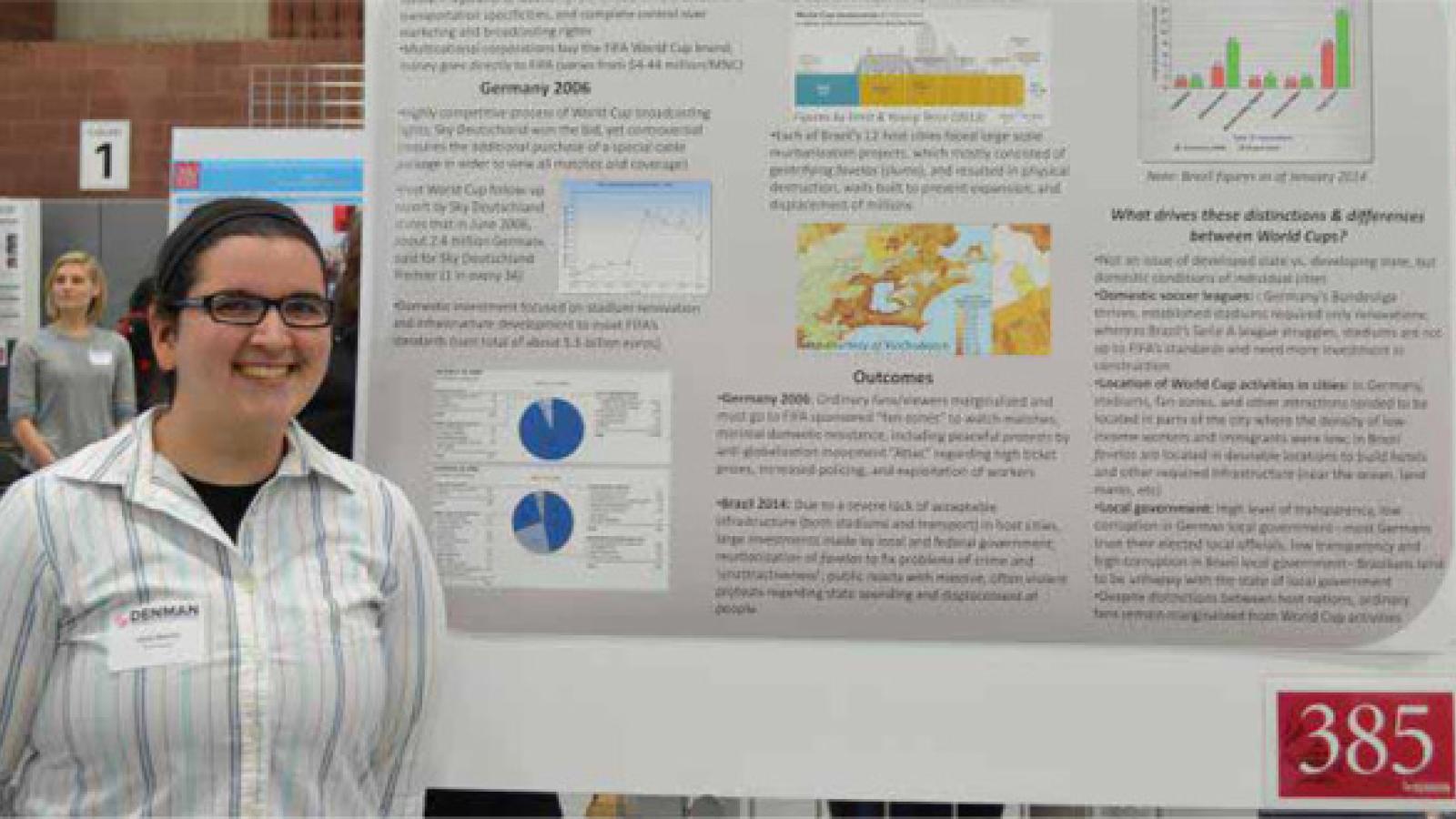The Not‐So‐Beautiful Game: Variances in the Commodification of the 2006 and 2014 FIFA World Cups
Presenter: Layla Banaie
Advisor: Dr. Tatyana Nestorova
Football, or soccer as it is known in America, is often called “the beautiful game;” however, football’s main spectacle, the FIFA World Cup, has become increasingly more about pro fi t than the sport itself. Neoliberal policies enacted by FIFA (the governing body of the sport), such as infrastructure requirements and influence over broadcasting rights, have caused the world’s most beloved mega-event to create an inequality gap within host nations. Although the topic of World Cup commodification has been explored in the past, there has been a lack of focus regarding host countries, and whether there are variances between countries involving pre- and post-World Cup planning and activities. By looking at the 2006 World Cup hosted in Germany and the upcoming 2014 World Cup to be hosted in Brazil, these variances are apparent by analyzing data on allocation of expenditures and the social reactions to policy changes by residents. What drives these distinctions and differences between World Cups? The set of domestic conditions plays a large role in how residents become affected by FIFA’s prestigious competition, thus causing different social activity revolving around the mega-event. Germans in 2006 tended to be excluded from World Cup activities based on marginalization from broadcasting companies, whereas Brazilian residents are currently targets of citywide gentrification projects, and consequently engaging in often-violent protests. Data from FIFA Financial Reports, as well as reports on public and private spending in Germany and Brazil, were used to show that World Cup commodification promotes inequality, even though the means of commodification differ in the two countries.

